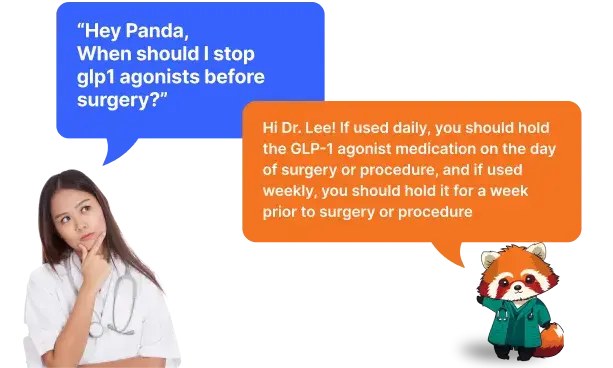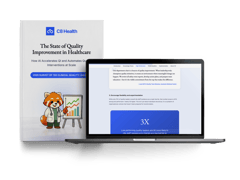
Strategic Content Dissemination for Healthcare Operational Efficiency
In healthcare, operational efficiency is directly linked to patient well-being. When healthcare facilities run smoothly, professionals have more time to focus on patient care, treatment, and overall quality.
Sharing knowledge-from research findings and internal procedures to industry best practices-across an entire organization can significantly improve operational efficiency and patient outcomes. Let's explore how strategic content sharing can enhance operations.
» Prevent operational inefficiencies. Disseminate your guidelines
Strategic Content Dissemination: What Is It About?
Strategic content dissemination means carefully planning how to share information. The goal is to break down communication barriers and get the necessary knowledge to doctors, nurses, and other staff.
Why should you focus on this approach? Because patients get better care and your facility runs smoother if everyone has quick access to the latest information.
For example, surgeries can get canceled because people don't follow pre-operation procedures. What if someone forgets to stop the patient's blood thinner before surgery? You've just wasted time, effort, and resources-all for nothing. You'll have to cancel the procedure.
Your staff needs to know how to react to any situation. The information should come quickly because there is no time to waste in healthcare. You also need to ensure the content you store stays accurate and relevant. Want to add or change something? Everyone should be notified.
The idea is not just to inform your staff about the latest procedure but to ensure they understand it. And there's a way to do that.

4 Ways to Stop Operational Inefficiencies With Content Dissemination
1. Centralize Information
Many hospitals scatter their information through various computers, making it difficult to find and use quickly. A knowledge management system surmounts this problem by standardizing data and keeping it in one place.
Doctors, nurses, and other staff can easily find what they need, no matter where they work. Everyone contributes their expertise and collaborates in a single platform, so the whole team learns from each other. The result? Improved patient safety and outcomes.
Knowledge management is vital to modern hospitals, but many healthcare organizations struggle with it. Our latest report, The State of Knowledge Management in Hospitals, covers the topic in depth.
2. Enable Multiple Media Formats
Hospital information is often in various formats. Papers, pictures, videos, and slides should all combine if you're to enable quick access we've talked about. You'll reduce operational inefficiencies if you ensure consistency between documents and make your content accessible via a cell phone.
» Check out strategies for improving patient satisfaction scores
3. Offer Real-Time Updates
Medical information changes quickly. If doctors and nurses use outdated information, it can be dangerous for patients. We need a system that always has the newest information so everyone knows what to do. This helps prevent medical errors.
» Discover the reasons quality improvement is crucial in healthcare
4. Keep Information Secure
Hospitals must protect patient information from hackers and other bad guys. When choosing a new system, make sure it has strong security to protect patient data. It should also follow strict rules like HIPAA and GDPR to keep information private.
» Learn about the impact of health information technology on patient safety
Share Knowledge Effectively for Better Patient Outcomes
Healthcare organizations can significantly improve patient outcomes, operational efficiency, and overall quality of care by effectively implementing a strategic content dissemination plan.
A centralized knowledge management system, combined with effective communication strategies, empowers healthcare professionals.
These tools enable informed decisions, enhanced collaboration, and optimal patient care, ultimately leading to a healthier patient population and a more resilient healthcare system.
» Struggling with operational inefficiencies? Coordinate your care
Disclaimer: Our content serves informational purposes only and shouldn't replace the advice and services of qualified professionals. While we strive for accuracy, we cannot guarantee an entirely error-free experience. C8 Health will not be liable for any losses or damages resulting from the use of our content.



